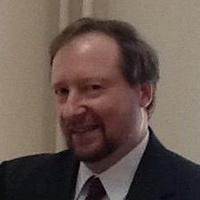Buckfield Felony Lawyer, Maine
Not enough matches for Buckfield Felony lawyer.
Below are all Buckfield Criminal lawyers.
Stephen J. Sucy
✓ VERIFIEDAccident & Injury, Criminal, Divorce & Family Law, Employment, Traffic
Stephen Sucy is a practicing lawyer in the state of Maine. Attorney Sucy received his J.D. from the University of Maine School of Law in 1995.
Sarah L. Glynn
Wrongful Termination, Child Custody, Criminal
Status: In Good Standing Licensed: 25 Years
Jeffrey B. Wilson
Government, Employment, Criminal, Accident & Injury
Status: In Good Standing Licensed: 17 Years
David Q. Whittier
Real Estate, Lawsuit & Dispute, Divorce & Family Law, Criminal
Status: Inactive Licensed: 55 Years
Steven M. Carey
Other, Lawsuit & Dispute, Government, Criminal
Status: In Good Standing Licensed: 21 Years
Ronald P. Lebel
Family Law, Divorce, Custody & Visitation, Criminal
Status: In Good Standing Licensed: 50 Years


